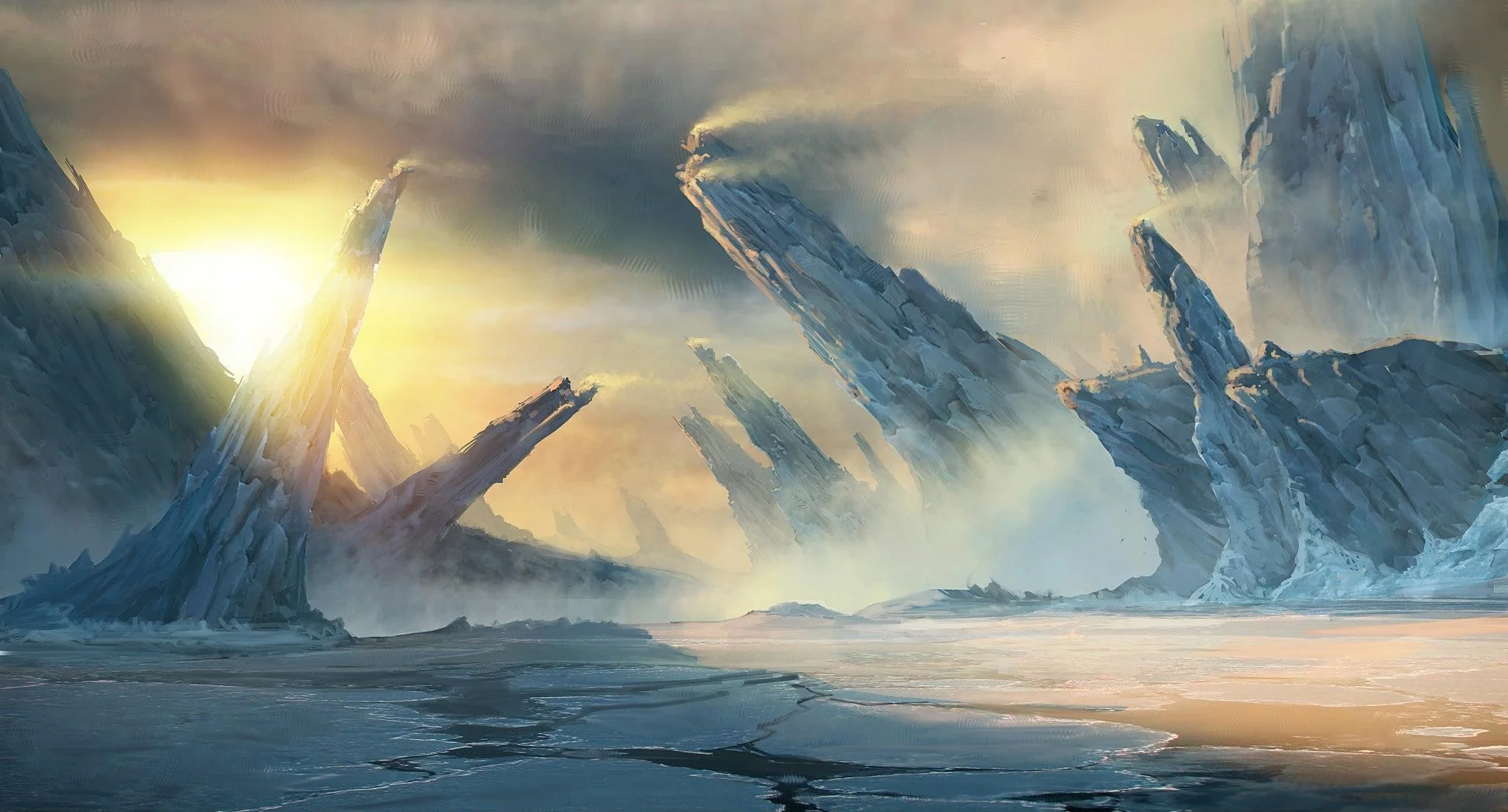The frozen wastes...
Tribes of eternal wanderers...
Home of the Wonder-Seekers...
Races
Orcs
The Tribal Map-Makers
The highest good is facing the unknown
The best person is the one who is unafraid of uncertainty
The most sacred life is the unknown
The most sacred duty is the pursuit of the unknown
The most wicked evil is settlement
The most heinous crime is abandoning the pursuit of the unknown
Overview
The orcs of the frozen plains are not the monsters heard of in dwarvish story books. They are a proud, intelligent race, old as the elves and as thoughtful. They are the first of the mortal races. Their Dwarf and Elf, blessed with long life did not have the same sense of urgency as a mortal-lived Orc. Thus, it was these grey giants of Low Dûrdn who first set out to explore the world.
The Orcs soon discovered that they had other abilities that suited them to exploration. The Orcs have a genetic feature that allows them to adopt minor physical alterations to adapt to new environments, a trait that echoes the Seafolk's first entry from Ëidine into their new watery home in the age before the first age.
The Orcs' adaptations can be seen in the blubbery, thick hide of the grey orcs from Low Dûrdn, the brown-skinned Dire Orcs, and the newly birthed Green Orcs of North Ëidine.
Tribes
The orcs have no established cities, as such a practice would be an affront to their cultural heritage. Nomadic by nature, the orcs wander the frozen plains, exploring the ever-unfolding mysteries of the icy plains at the top of the world.
Grey Orcs
Low Dûrdn proper
Oldest ethnicity of Orc
Brown Orcs
West and central South Sembre
Also called Dire Orcs
Green Orcs
North Ëidine
Newest ethnicity (1637)
History
Even though they are one of the first races to tread the realm, there is little recorded history of the orcs. Their written documents are almost exclusively cartographical with only a few narratives here and there. The only well-documented event of Orcish life is their near-enslavement under the dwarves. In the Third Age, the citizens of High Dûrdn sought to dominate their lesser brethren and descended from the peaks to spread their authority over the orcs. With their superior weaponry, the dwarves should have been able to easily overpower the orcs. However, when they arrived on the floor of the icy plains, they discovered the orcs had allies: the Seafolk. The events of the Apocalypse, the Orcs returned to their voyaging ways, seeking out the new mysteries of a world ruled by a god in the sea.
The Green Orcs
One tribe even ventured as far as to settle on Ëidine's frigid northlands. Though they were warned to steer away from the deadly mainland, the orcs landed just the same and found - to the great surprise of all Amaura - that they were immune to the Inheritance Spell. Perhaps it is because of their Precursor heritage or maybe it is owed to their environmental adaptability (that tribe turned green after their exposure to the island) - whatever the cause, the Orcs proved, once again, the infallibility of Amaura's hardiest race.
Of course, the orcs had to grapple with the hurt pride of some affronted elves, but their entrance to Ëidine was largely well-received. Naeven the Returned saw it as an important opportunity for the elves to demonstrate their new hospitality to the world. And Ëidine herself chose one of the orcs - Aluah - as the third seat on the Pristine Council, all voices against the orcs were hushed.
